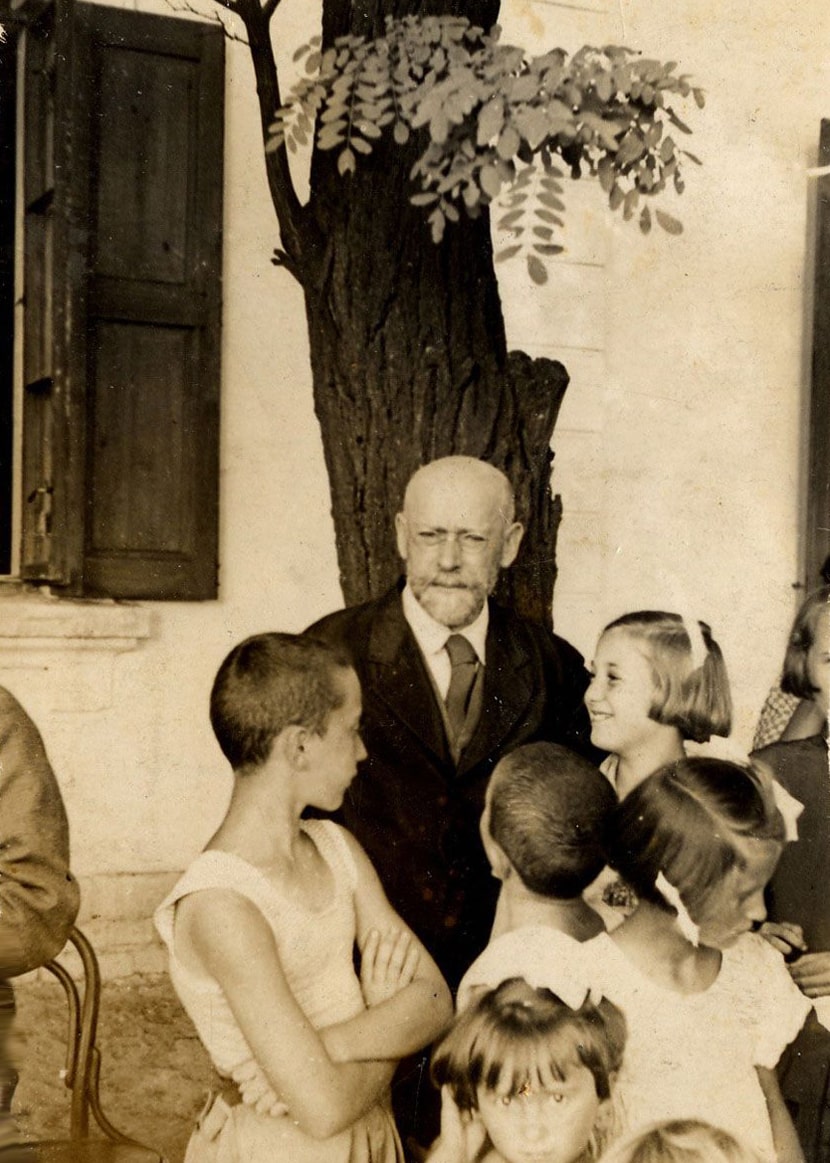Janusz Korczak (given name Henryk Goldschmidt), also known as the Old Doctor, was born in Warsaw on July 22, 1878 [1879]. He was also known as the Old Doctor. Polish armies.
Janusz Korczak came from a Polonized Jewish family. Therefore, throughout his life he emphasized belonging to both nations. In March 1905, he graduated from the medical department of the Imperial University in Warsaw with a degree in medicine. In the same year he took part in the Russo-Japanese War as a military doctor. In 1903–1911 he worked at the Jewish Children's Hospital named after Berson and Bauman, an educator in summer children's camps, was a member of the Jewish Charitable Society for Aid to Orphans. In 1911, he founded the Jewish Orphanage, which he managed for the rest of his life. It was here that he introduced an innovative system of broad children’s self-government for those years - a children’s friendly court, the decisions of which were binding not only on the pupils but also on the administration of the institution, plebiscites, etc. During the First World War he served as a junior head of the divisional infirmary, mainly in Ukraine. During the Polish-Bolshevik War (1919–1921) he was a doctor in the military hospitals of Łódz (and Warsaw. For selfless work he received the rank of Major of the Polish Army. In 1919–1936, he also took part in the work of the Polish boarding school “Our Home”. In 1926–1932, Korczak edited the weekly Mały przegląd (Small Review), a children's supplement to the Zionist newspaper Nasz przegląd (Our Review). The uniqueness of the children's newspaper was that its authors were their peers – Janusz Korczak's pupils. His radio broadcasts, The Old Doctor's Conversations, were extremely popular not only in Poland but also abroad. In addition, J. Korczak taught at the Free Polish University and at the Higher Jewish Pedagogical Courses, led the work in court on juvenile delinquency. He spent the last years of his life in the Warsaw ghetto, where he found himself with the pupils of the Orphanage. On the morning of August 6, 1942, about 200 pupils, led by Janusz Korczak and tutors, were deported to the Nabreb camp of Treblinka.
Educator-innovator, author of works on the theory and practice of education. Initiator of activities for the protection of children's rights and full equality of children. He is the author of numerous works, including fairy tales for the youngest, and most importantly - more than 20 books on raising children. Among them, a special place is occupied by a kind of manifesto of humanism “How to love a child.” Janusz Korczak left us amazing, good and instructive books. Ukrainian is spoken to readers: “The Adventures of King Matthew”, “The Human Child: Selected Works”, “Alone with God”. Prayers of those who do not pray, “Matthew's adventures”, “How to love children”, “Rules of life”. During World War II, he kept a diary – a unique document of the era, given the circumstances of its writing.
In 1925, Korczak received the Officer's Cross of the Order of the Polish Renaissance for his educational activities. In 1937, he received the Golden Academic Laurel of the Polish Academy of Literature for his literary work. In 1948, Janusz Korczak posthumously received the Knight's Cross of the Order of the Polish Renaissance. In 2018, he was awarded the highest award of Poland - the Order of the White Eagle.
By the decision of the Sejm, the year of the 70th anniversary of the death of a prominent doctor and teacher – 2012 was declared the “Year of Korczak” in Poland.
Korczak spent three years of his life in Ukraine. In memory of this, in 2016, a street named after Janusz Korczak appeared in Kyiv, and earlier – a memorial plaque at 47 Volodymyrska Street, where he worked.

